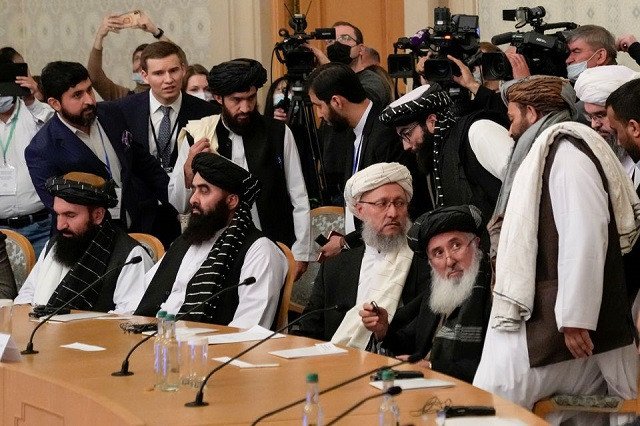The Taliban government declared the release of an Afghan prisoner, Khan Mohammad, from US custody in exchange for American detainees. The exchange, facilitated by Qatar, marks a significant development in relations between the two countries. Mohammad, who had been serving a life sentence after his arrest nearly two decades prior, has now returned to Afghanistan. This exchange underscores the ongoing diplomatic efforts between the US and the Taliban, illustrating a willingness to negotiate despite the complex and strained history between the two nations. The details regarding the American detainees released in exchange remain undisclosed, leaving open questions about their identities and the circumstances surrounding their detention. The focus remains on the broader implications of this exchange, particularly its potential impact on future negotiations and the overall relationship between the US and Afghanistan under Taliban rule.
The release of Khan Mohammad also raises important questions about the nature of his imprisonment and the reasons behind his prolonged detention. The Taliban statement refers to him as an “Afghan fighter,” suggesting his involvement in combat activities against US forces or their allies. Understanding the context of his arrest and subsequent life sentence is crucial to fully comprehending the significance of his release. This exchange echoes previous instances of prisoner swaps involving the US and various groups around the world, often with political motivations and aiming to de-escalate tensions or open channels for dialogue. The specific circumstances of Mohammad’s case, and whether similar exchanges might occur in the future, remain to be seen.
This instance underscores the ongoing complexities and challenges surrounding the US’s withdrawal from Afghanistan and the subsequent Taliban takeover. The release of prisoners, especially those involved in conflicts, is a sensitive issue that carries significant implications for both domestic and international audiences. For the Taliban, it represents a victory and a validation of their negotiating power on the global stage. For the US, it involves a delicate balancing act between securing the release of its own citizens and engaging with a regime it previously opposed. The long-term ramifications of this exchange will depend on how both parties navigate the delicate post-withdrawal landscape and whether this event leads to further dialogue or escalates existing tensions.
The role of Qatar as a mediator in this exchange is also notable. Qatar has a history of facilitating negotiations between the US and various actors in the Middle East, including the Taliban. Its involvement highlights the country’s growing diplomatic influence and its willingness to engage in complex and often controversial diplomatic efforts. The successful brokering of this prisoner swap further solidifies Qatar’s position as a key intermediary in the region and may pave the way for its involvement in future negotiations related to Afghanistan or other regional conflicts. This also speaks to the increasingly important role of intermediary states in international relations, particularly in situations where direct communication between conflicting parties is difficult or impossible.
This event transpires against a backdrop of ongoing humanitarian and economic crises in Afghanistan. The Taliban’s return to power has left the country grappling with severe challenges, including widespread poverty, food insecurity, and restrictions on human rights, especially for women and girls. While the prisoner exchange represents a significant diplomatic development, it does not address the fundamental issues plaguing Afghanistan. The international community continues to grapple with how to engage with the Taliban regime while upholding human rights principles and providing essential humanitarian assistance to the Afghan people. The long-term stability and future of Afghanistan will depend on the resolution of these broader challenges, not just on isolated diplomatic events.
The announcement of the prisoner exchange also coincided with an advertisement for IQ Options, an online trading platform. This juxtaposition underscores the stark contrast between the complex geopolitical landscape and the individual pursuit of financial gain. While international diplomacy unfolds and nations grapple with complex political issues, the everyday lives of people continue, with their focus on personal financial security and aspirations. This advert’s placement alongside the news story serves as a reminder of the broader context in which such events occur, and the different levels on which individuals and nations interact with the world around them. While the focus of the news story is on international relations and politics, the inclusion of the advertisement reminds us of the economic realities that shape individual choices and motivations, even in the face of larger global events.














